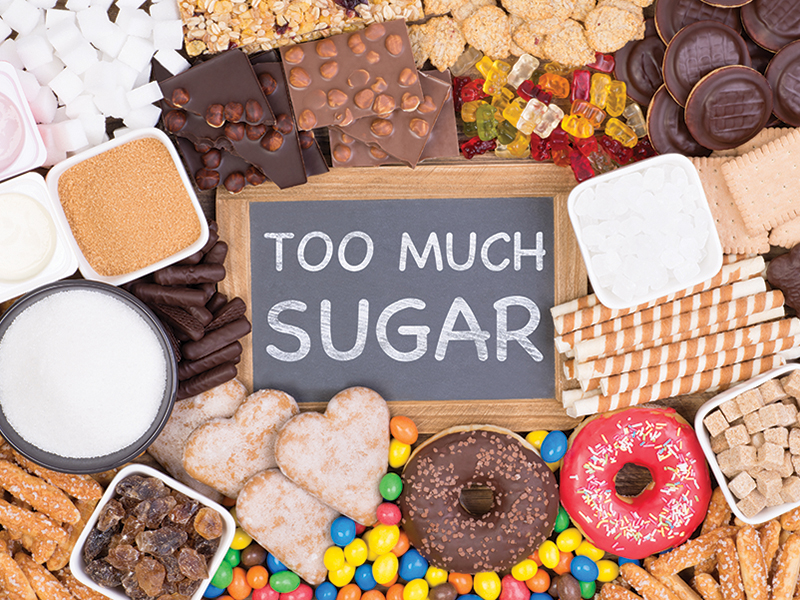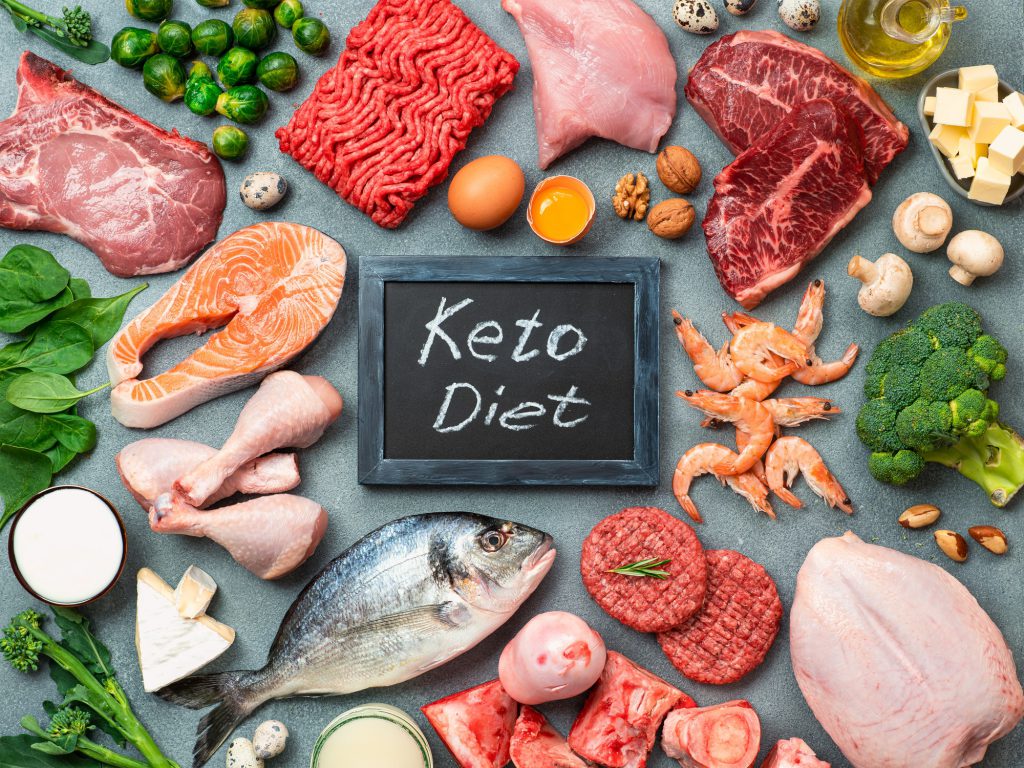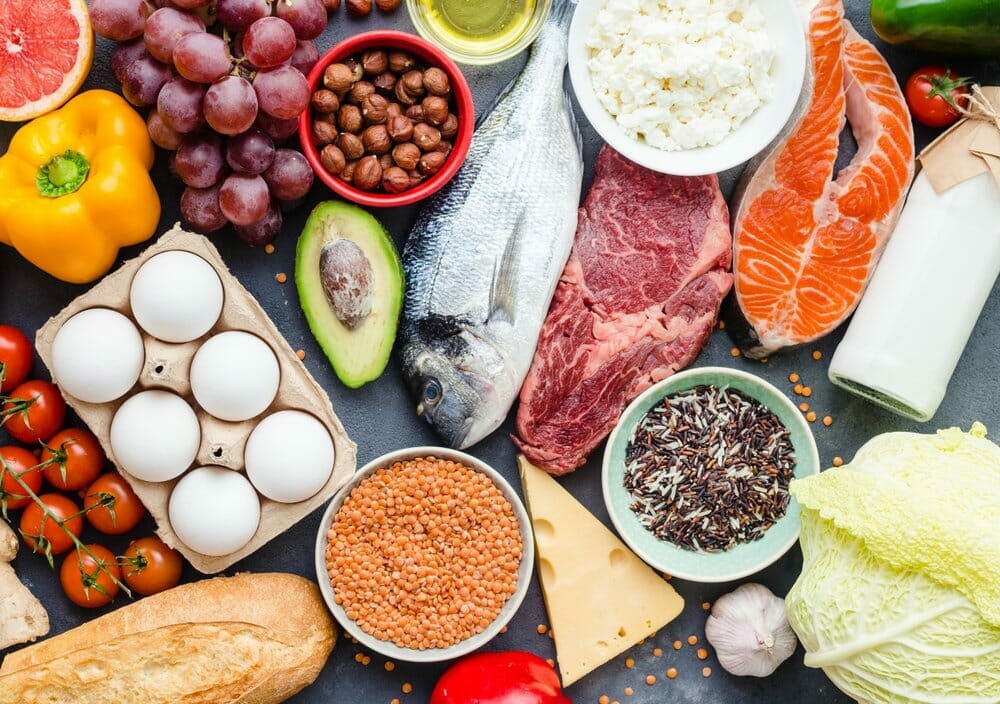How does food have an impact on your mood – Are you well underway using your Strive app so you can now Track Activity and Measurements from your Apple Watch and Smart Scale? While you are striving to be the best version of yourself you need all the best tools to succeed.
We have said it many times before but you are what you eat.
It’s important to remember that everything you put into your mouth has an effect on your body, in some way. Each food has a different purpose which is why your body needs a varied and balanced diet.
Not only does food affect your body it also affects your brain. Your brain is a sensitive organ and when it comes to diet and nutrition, should not be ignored.
Your brain is pretty amazing, it comprises 60% of fat and is one of the fattest organs in the human body. Also, your brain gets 20% of the total blood and oxygen that is produced in our body. It’s a pretty important organ, to say the least so it’s time you put some thought into the fuel you are providing it.
Foods have an impact on your mood. If you are eating rubbish, boy will you feel rubbish. In this post we are going to delve into the reasons why food affects mood and why you should pay close attention to what you are eating.
Brain foods – nourish your brain like you would your body
Foods That Improve Mood Happiness – First things first. Let’s start by taking a brief look at the types of food which are good for your brain for
Fatty fish – Your brain uses omega-3s to build brain and nerve cells, and these fats are essential for learning and memory.
Green leafy veg – Leafy greens contain iron and vitamin K, as well as a number of compounds with anti-inflammatory and antioxidant effects, which may help protect your brain against damage.
Nuts & seeds – Nuts can improve cognition and even help prevent neurodegenerative diseases.
Carbohydrates – Whole foods not processed. Carbs are your brain’s primary source of fuel.
Coffee – Caffeine in coffee keeps your brain alert by blocking adenosine, a chemical messenger that makes you sleepy.
Dark chocolate – Dark chocolate contains brain-boosting compounds, including flavonoids, caffeine and antioxidants.
Now we know the types of food your brain requires to function. Are you getting enough of all these or are you surviving on a diet of processed, nutritionally void foods? If you are you could well be suffering from low mood and lack of motivation.
Let’s delve a little deeper…
Food & mood disorders
The biggest topic to cover when talking about How Does Food Affect Your Mood is how food can cause low mood. If what you are eating is detrimental to your mental wellbeing then it’s time you did something about it, or maybe if you have been wondering why your mood is always low then it’s time to look closer at your diet.
Studies have shown that in order to help patients recover from mental illness eating a diet that is rich in brain food such as fish, seafood, beans & legumes, leafy greens and other vegetables, olive oil (monounsaturated fat), yoghurt, nuts – can be an effective and relatively simple way to promote mental health, it can also be easily integrated into healthcare.
In a study that set out to identify the most nutrient-dense individual foods to prevent and promote recovery from depressive disorders and symptoms were bivalves such as oysters and mussels, various seafood, and organ meats for animal foods. The highest scoring plant foods were leafy greens, lettuces, peppers, and cruciferous vegetables.
Taking it back to basics, if you are filling your body with processed, low-quality foods how do you expect to get optimum performance from your body? You simply won’t.
Chocolate – food or drug?
Do you ever crave chocolate?
Do you ever have a chocolate binge when you are feeling low?
We are all very familiar with people being addicted to alcohol and drugs but it’s been found that chocolate may evoke similar psychopharmacologic and behavioral reactions in susceptible persons.
Studies have found that chocolate contains several biologically active constituents, all of which potentially cause abnormal behaviors and psychological sensations that parallel those of other addictive substances. Most likely, a combination of chocolate’s sensory characteristics, nutrient composition, and psychoactive ingredients, compounded with monthly hormonal fluctuations and mood swings among women, will ultimately form the model of chocolate cravings.
Dark chocolate is considered the ‘healthier’ choice. Dark chocolate is known to aid the release of endorphins – the feel-good hormone. Dark chocolate boasts all the properties that are linked to the antidepressant effects of tryptophan, serotonin and phenethylamine. Dark chocolate enhances your mood and can provide a calming effect.
Are we all sugar addicts?
Sugar addiction is real. Research shows that sugar can be even more addicting than cocaine.
Emotional or psychological dependence on sugary foods and drinks, also known as sugar addiction, is a real cause and we have all been guilty of it at some point. Have you ever wanted that ‘lift’ from a sugary treat? This is because consuming sugar releases dopamine.
Dopamine is a neurotransmitter that is a key part of the “reward circuit” in the brain associated with addictive behavior. When a certain behavior causes an excess release of dopamine, you feel that oh so pleasurable “high” that you are inclined to re-experience, and so repeat the behavior – ever thought you will have 1 sweet then demolish the entire packet? Yup – that’s what we are talking about As you repeat that behavior more and more, your brain adjusts to release less dopamine. The only way to feel the same “high” as before is to repeat the behavior in increasing amounts and frequency. This is known as substance abuse. This reliance on sugar can cause weight gain and of course a low mood. If you can’t get your sugar high you are likely to become irritable and annoyed as you can’t give your brain that release of dopamine. Reliance on high sugar food can also cause excessive weight gain as you lose control of your diet.
Skipping meals… a big NO
We have looked at how eating too much of the bad stuff can cause your problems but what about if you’re not eating enough at all? Skipping meals or not eating enough can have negative effects on your mood as well as your ability to function.
Missing meals, especially breakfast, can lead to low blood sugar. Low blood sugar (or glucose) can leave you feeling fatigued and trained with reduced ability to concentrate.
If you are missing entire food groups from your diet you will struggle to get all the essential nutrients your brain needs to function. Low levels of zinc, iron, B vitamins, magnesium, vitamin D, and omega-3 fatty acids are associated with worsening mood and decreased energy.
Why does food affect mood? Food really can affect your mood, whether it is from a sugar high, a lack of eating plan or eating all the wrong stuff.
Bad eating habits can cause you a whole host of problems such as low mood, fatigue and lack of brain energy. Blood sugar fluctuations and nutritional imbalances are often to blame. Without a steady source of fuel from the foods we eat, our minds and bodies don’t function well.
Ensure you are mindfully eating and include all the important food groups to help reduce your chances of depression and low mood.
Frequently Asked Questions
What type of food can boost happiness and the mind?
Fruits and vegetables are some of the best foods to boost your mood and keep your mind energized. They contain a lot of electrolytes which can help your body reset after a long day at work. Dark chocolate is also one of the most popular fruits that people use when they're feeling down; it contains magnesium which is needed on a daily basis for our brains to function well.
What food negatively affects the mood of an individual?
There are some foods that have an impact on the mood of an individual. Some people may experience a temporary headache after eating too much salt or taking too many supplements containing caffeine. A person can also experience mood swings when they eat too much sugar, which causes their blood sugar level to rise.
What kind of food is good for depression?
Many people believe chocolate is beneficial for depression, which causes the brain to release serotonin and improves a person's mood. Other foods that have antidepressant properties include caffeine, bananas, and blueberries.
What are the best vitamins for mental health?
There are many nutritionists who advise that vitamin B12, which can be found in fish or red wine, is a mood positively modulating vitamin. Another reputable source states that Vitamin D seems to have a positive impact on mood while also working as an antidepressant. Blackberry powder is also recommended because of its potent antioxidant properties.
How does food affect your emotions?
Our food impacts our mood, and everyone should know that. It affects everything from our happiness to our waistlines, but we don't always realize exactly how much it changes us. We are all different, so we all react when it comes to food differently. The best thing you can do is try different foods to find out what really makes you happy--and that might be something unexpected.
Why does eating healthy make you feel better?
There has been research done on the impact of food on our mood and behavior. Although it is somewhat difficult to pinpoint exactly why eating healthy makes us feel better, research has found that there are a number of factors related to our mood that change when we make healthier food choices. One of these factors is a correlation with tryptophan levels. Tryptophan is an essential amino acid that is necessary for the production of serotonin which in turn affects our mood.
Does diet affect behavior?
The foods we eat are a major component of our behavior. Well, the nutrients and chemicals in them are what impact it, but they also can take their toll on moods and behaviors. The food that is consumed by an individual has a direct effect on their mental functioning and actions. The cognitive ability among children and adolescents get affected by the type of nutrient and meal pattern they take.
How does skipping meals affect your mood?
Skipping meals is when a person does not take in any food for a specific period of time. The sudden drop in glucose results in experiencing hunger, and that leaves an impact on mood. Skipping meals is responsible for mood swings, migraine, lack of focus and other disturbances.
Does sugar affect mood?
The type of food we eat has major and long-term implications on health. Sugar does have an impact on your mood. Sugar increases blood glucose and, subsequently, levels of serotonin. Consumption of too much sugar results in fatigue and headache; on the other hand, low sugar will cause anxiety and irritability.
Which food is best for mental health?
Unsurprisingly, a study found that those who ate whole grains and fewer fast-food meals had a less negative mood throughout the day. It is better to focus more on fresh fruits and vegetables with the addition of omega-3 fatty acids to get a healthy and sound mind. On the other hand, people with high LDL cholesterol should avoid egg yolks or consuming foods made from these eggs at all times. You can also include foods high in antioxidants such as blueberries, dark chocolate, and black tea to support your moods because they have been found to improve concentration and reduce anxiety.
What is the impact of processed food on mood?
There's a lot to the impact of processed food on mood. All processed foods, including their ingredients and packaging, can lead to increased deleterious stress-related effects like depression, anxiety, poor sleep, decreased work performance, etc. These adverse effects are known to increase the risk for heart disease, type 2 diabetes and cancer as well.



